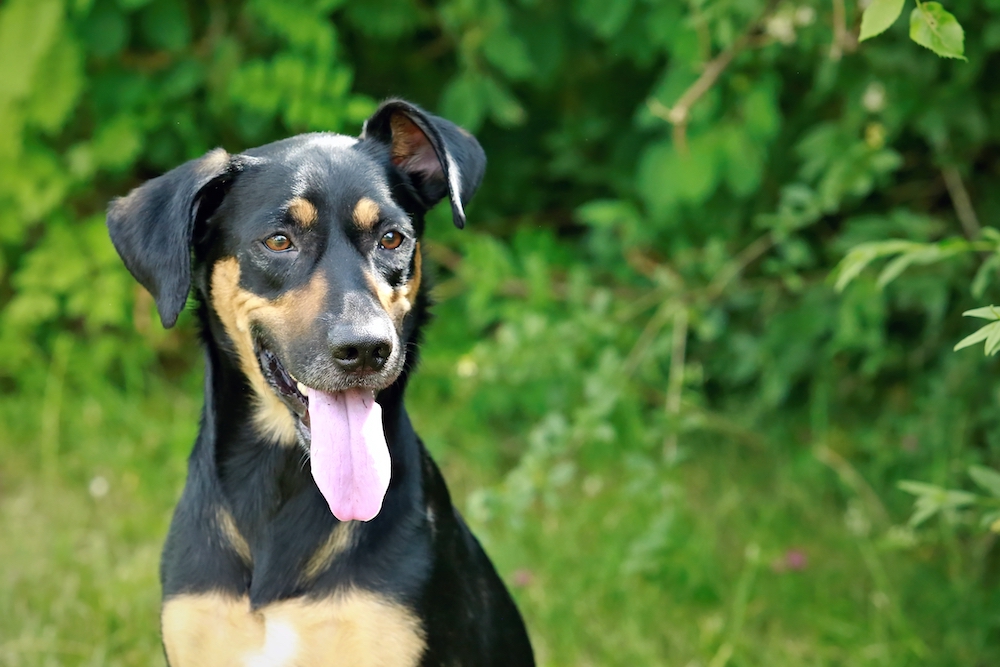Dogs, like their human friends, hiccup from time to time. Usually, it’s no big deal. Curious about the phenomenon, when it’s most likely to happen, and when you might want to ask a vet about it? Here’s our guide.
Hiccups: What are they?
Hiccups are involuntary contractions of the diaphragm muscle that lead to inhalation and a distinctive sound.
Many humans will also tell you that, when they happen to dogs, hiccups are cute.
Causes of hiccups in dogs
Sometimes, hiccups may seem to occur for no reason at all—but they tend to arise from irritation to the diaphragm. Puppies typically hiccup more than adult dogs, but hiccups can occur in dogs of any age. Some of the causes include:
- Eating too quickly
- Overexertion
- Getting excited or stressed
- Swallowing air for another reason
- Breathing in an irritant
- Stomach irritation or hiatal hernia

How to stop hiccups in dogs
Your dog’s hiccups will usually go away on their own—in fact, one vet told us that the only real remedy is waiting—but if you want to help the process along there are methods that some humans say work for their pups. For example:
- Encouraging your dog to eat more slowly
- Gently rubbing your dog’s belly while they lay on their back
- Giving your dog water to drink—just make sure they do so at a measured pace, not too quickly
- Taking your dog on a relaxing walk
Whether or not the above techniques will speed your dog’s recovery from hiccups, they should be harmless. But we don’t recommend trying to get rid of a dog’s hiccups by scaring them, which can put you or them in much more danger than the hiccups themselves—and, at best, might annoy them.
You can’t set your watch by dog hiccups
Precisely how long a dog has hiccups can vary, and different amounts of time are within a normal range. An individual episode of hiccups might only last a couple of minutes—but bouts of hiccuping can occur repeatedly, particularly in puppies.
When it’s time to visit the vet
If your dog’s hiccups last for more than a few hours—or if they’re showing other signs that something is wrong, especially any trouble breathing—call a vet to make sure there’s not an underlying issue causing them.
There’s no need to panic if your dog hiccups for a bit, or once in a while. But, rarely, sustained or frequent hiccuping can be a sign of a problem that requires veterinary attention. The same goes for hiccups that are accompanied by other signs of illness like coughing, sneezing, vomiting, diarrhea, or loss of appetite. If your dog shows any big change from their normal behavior, it’s a good idea to visit a professional and make sure there’s not a medical reason for the shift.
Sometimes, dogs may seem to be confused or annoyed by their own hiccups
On occasion, after a hiccup, a dog barks or looks around in confusion. That’s as good an excuse as any for us to show you this video:
This article was vetted by a vet.
Reviewed by Alex Schechter, DVM, founding veterinarian at Burrwood Veterinary.









